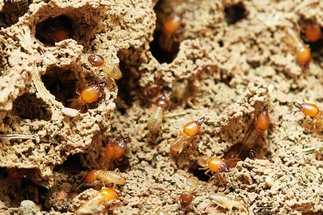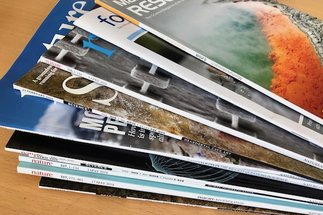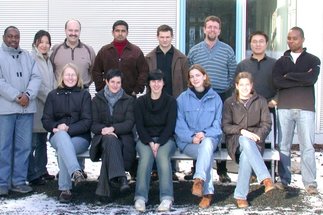Insect gut microbiology and symbiosis
Prof. Dr. Andreas Brune
Research Area
Termite guts are tiny bioreactors converting lignocellulose to microbial fermentation products that fuel the metabolism of the host. My research group studies the role of the gut microbiota in the symbiotic digestion of wood, focusing on the structure and functions of the gut microbiome, the biology of the prokaryotic and eukaryotic symbionts and their interactions, and the evolution of the intestinal microbial community. Other aspects are the microbial processes in the guts of humivorous soil macrofauna, such as soil-feeding termites, scarab beetle larvae, and millipedes.
Recent publications:
- Salgado, J.F.M., Hervé, V., Vera, M.A.G., Tokuda, G., Brune, A. (2024)
- Unveiling lignocellulolytic potential: a genomic exploration of bacterial lineages within the termite gut. Microbiome 12: 201. (Online)
- Protasov, E., Reeh, H., Liu, P., Poehlein, A., Platt., K., Heimerl, T., Hervé, V., Daniel, R., Brune, A. (2024)
- Genome reduction in novel, obligately methyl-reducing Methanosarcinales isolated from arthropod guts (Methanolapillus gen. nov. and Methanimicrococcus). FEMS Microbiol. Ecol. 97: fiae111. (Online)
- Mies, U.S., Hervé, V., Kropp, T., Platt, K., Sillam-Dussès, D., Šobotník, J., Brune, A. (2024)
- Genome reduction and horizontal gene transfer in the evolution of Endomicrobia–rise and fall of an intracellular symbiosis with termite gut flagellates. mBio 15: e00826-24. (Online)
- Nweze, J.E., Šustr, V., Brune, A., Angel, R. (2024)
- Functional similarity despite taxonomical divergence in the millipede gut microbiota points to a common trophic strategy. Microbiome 12: 16. (Online)





